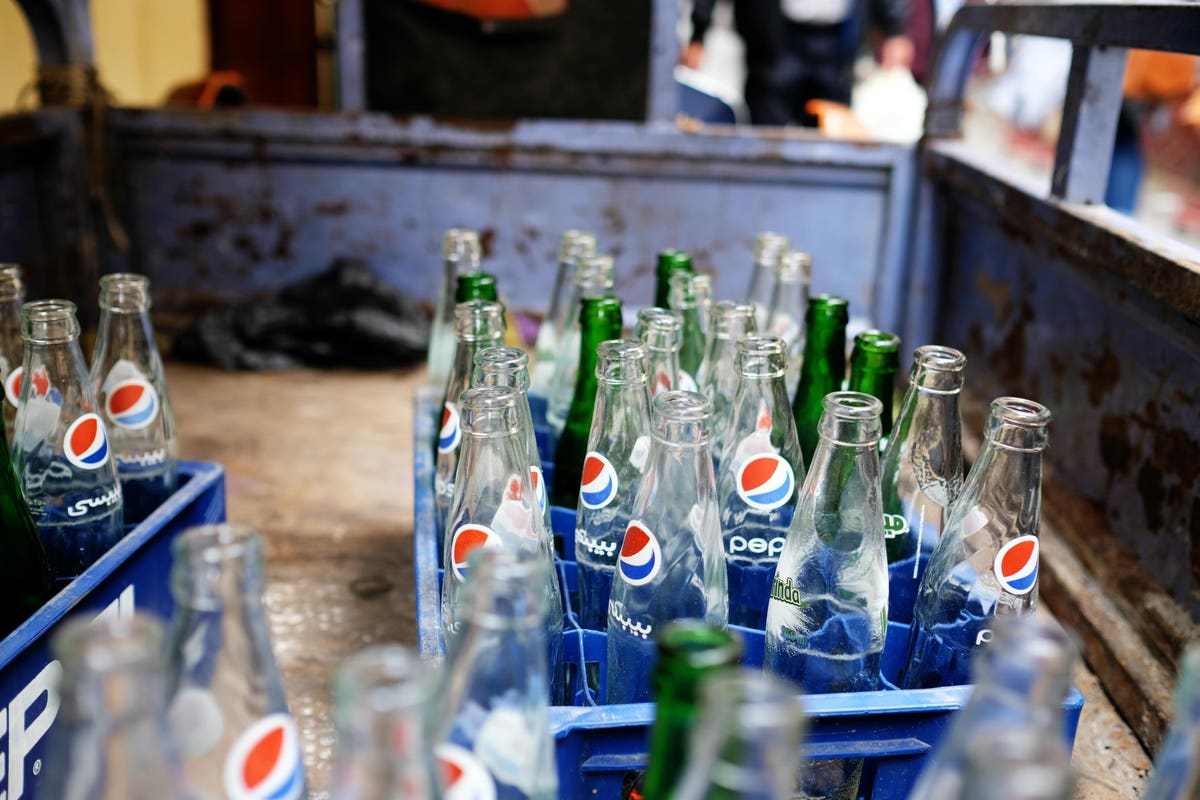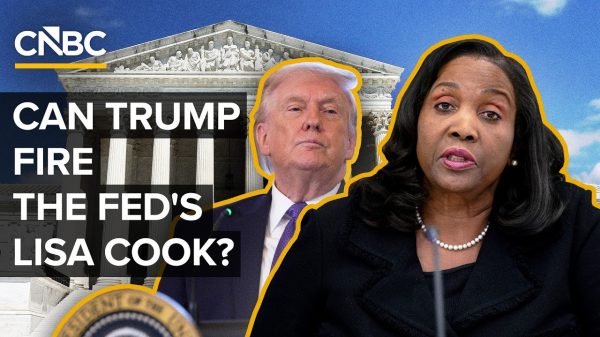As the hottest summer on record winds down and populations across the globe battle the tumultuous effects of climate change, it’s an ideal time to consider how we, as investors, corporations and consumers, can make global plastic circularity an achievable goal. While we continue to make progress in our work, what’s become strikingly evident with each passing year is the need to do more, faster. To solve enormous environmental challenges like the plastic waste crisis as well as the related impacts on climate change, we need all actors working together. We simply have too much to do, the problems are too complex, and time is not on our side.
Fortunately, there are many ways stakeholders can take collective action – with peers, local communities, and governments – to expedite our path towards a wholly different way of addressing our relationship with plastic and plastic waste.
I recently sat down with Jim Andrew, Chief Sustainability Officer at PepsiCo
PEP
How has PepsiCo’s approach to sustainability evolved over the past decade, particularly with respect to pep+? How would you rate your progress so far in achieving your objectives?
Sustainability has been a long-standing priority of ours, but the biggest evolution took place when PepsiCo Positive (pep+) – our strategic transformation to drive growth while also delivering a positive impact on the planet and people – launched in 2021. To enable a transformation of this magnitude, you can’t have sustainability siloed in your organization. You have to embed it throughout your business and in all your decision-making. For nearly two years, we have put pep+ at the heart of virtually all we do, and we’ve made meaningful progress, including on our agriculture, water, people, and nutrition agendas. We also continue to focus on areas where we aim to do more, such as packaging and carbon emissions and believe that by continuing to invest, scale proven innovation, and build new, strategic partnerships, we will continue to drive our transformation.
There is no silver bullet to solving the plastic pollution crisis. We need all actors involved and aligned to solve this problem – from governments to NGOs to investors to funds and companies, as well as multinational corporations like PepsiCo. How does PepsiCo think about the power and importance of collective action and strategic partnerships in terms of creating circularity at scale and across industries?
The importance of partnership and working toward a common ambition cannot be overstated because, as you said, many of the challenges to circularity can’t be overcome by any single organization. Overhauling existing systems, building infrastructure, and establishing effective regulatory frameworks – these require collaboration with many different stakeholders, and PepsiCo is engaged in a variety of consortia and initiatives to help shift the whole system in a more sustainable direction.
It’s through these partnerships and collective action that we can accelerate solutions, whether by scaling the availability and use of sustainable materials, finding ways for groups throughout the value chain to work better together, or elevating calls to action for better environmental outcomes through sound policy design. For example, we are part of the NextGen Cup Consortium and Composting Consortium to co-create solutions alongside our peers in areas of reuse and compostable packaging. The shared challenges we face require collective solutions, and so all actors in the value chain have to work together.
What is the role of investment capital, and more specifically catalytic capital, in driving a circularity agenda?
Investment capital is the “fuel” to drive our pep+ agenda, and we’re making substantial investments, including proceeds from the issuance of $2.25 billion in Green Bonds since 2019. But an individual company’s investment can only go so far. Catalytic investment and allocating capital where it can be most impactful is vital to circularity if we are to drive the level of resources required to address the size and complexity of the challenges, especially around the collection, sortation, and transformation of packaging materials. It’s what led PepsiCo to become a founding investor in Circulate Capital five years ago. Pooled capital enables pre-competitive solutions and magnifies our individual efforts, and, as a result, we can help scale the financial, environmental, and social action needed to reduce plastic pollution in South and Southeast Asia.
What are some of the systems’ barriers to achieving circularity?
We believe there are three systemic changes needed to drive a circular economy:
1) Better collection, sortation, and recycling infrastructure, supported by well-designed policies that incentivize a circular plastics supply chain. As a member of the Business Coalition for a Global Plastics Treaty, which supports the development of a global treaty to end plastic pollution, we believe that harmonized goals and standards, alongside well-designed and well-run Extended Producer Responsibility policies, have the potential to spur rapid progress towards a circular economy.
2) Ability to use recycled plastic in packaging. While we have seen movement in this regard, some markets still don’t allow recycled content in food-grade packaging. However, incorporating 100% recycled plastic (rPET) into packaging is only possible if enough supply is available, so it’s equally important that the plastic is recycled optimally. For us at PepsiCo, that means bottles being recycled back into bottles.
3) Support for reuse, both functionally and from a policy perspective. Policymakers often focus on refillable models to meet reuse standards, but models such as reuse at home, which has one of the simplest loops, must be part of the solution as well. We want to engage with policymakers and others throughout the value chain to ensure that reuse in all its forms is simplified and incentivized.
Demand plays a significant role in the circular economy’s success. How does PepsiCo think about engaging consumers in these discussions and enlisting their support in creating a more circular, sustainable future?
For a successful circular economy, everyone, including consumers, has a role to play. But, changing consumer behaviors that have been entrenched for decades and making recycling the norm is no small feat, particularly when convenient access to recycling is limited in many parts of the world. We need to make recycling the convenient and preferred option, which means there needs to be better infrastructure in place. To help support that, since 2018, PepsiCo and the PepsiCo Foundation have committed to invest more than $100 million in global recycling partnership initiatives to help elevate recycling rates and waste collection.
As the world’s second-largest food and beverage company, we also have an opportunity to use the scale of our business and the power of our brands to help educate and engage consumers. That can manifest by adding recycling messages to our advertising and packaging, engaging in campaigns such as the “Journey to Zero Waste” program in Thailand or “Eureciclo” in Brazil, or even leveraging our marketing sponsorships. In fact, just this year, we partnered with UEFA
EFA
Given your global footprint, I’m curious how you think about customizing your sustainability objectives for the different regions where you operate. And since India is of such strategic importance to your business (as well as ours), can you discuss your work there from a sustainability perspective?
Our products are enjoyed by consumers in more than 200 markets around the world, so we have global goals and approaches that we customize to meet local regulations and infrastructure realities. Our business also has both company-owned operations and a network of franchise bottlers, which adds complexity to how we roll out our strategy. However, while every country is different, there are some commonalities that afford us the opportunity to apply learnings and expertise across different markets and our bottlers, wherever they are in their journey. In India, specifically, we recently were able to take a big step forward in our sustainable packaging with the launch of Pepsi Black, India’s first carbonated beverage to be sold in 100% recycled plastic, in collaboration with local plastic recycling company Srichakra Polyplast. Moving to 100% rPET bottles can reduce greenhouse gas emissions by roughly 30% per bottle, but until recently, regulations in India did not allow the use of recycled plastic in food-grade packaging. Circulate Capital’s prior investment in Srichakra to build India’s first food-grade recycling facility — even before this major policy change — allowed us to move forward fast with our plans.
How about the crossover between environmental and social impact? The circular economy also presents the world with unprecedented opportunities to create more sustainable and inclusive value chains. How can the private sector better capitalize on these opportunities to rethink its supply chains to lift the lives of local communities?
pep+ is focused on having a positive impact on both the planet and people.
With regard to developing a circular economy, we’re striving to promote a safe and inclusive waste management system for those working informally in the sector. The informal recycling economy exists across the globe, filling the gap where, unfortunately, recycling options are lacking. However, informal sector workers often operate in unsafe conditions, without employment benefits, and experience income disparity. We believe it’s important that policy related to waste management should consider the livelihoods and well-being of informal waste sector workers, and in support of that, PepsiCo has signed onto the Fair Circularity Principles launched by TearFund and brands in 2022 to create a just transition towards a circular economy.
We also support a number of community-based initiatives that enact real change. For example, the PepsiCo Foundation and PepsiCo India have established a partnership with Recity, a local waste management organization, to turn Mathura-Vrindavan into one of the cleanest cities in the country and empower and professionalize the local waste workforce. The program seeks to inspire collective action to combat plastic pollution while also addressing issues of gender and economic disparity.
Can you leave us with one takeaway on what our biggest global priority should be when it comes to plastic circularity?
PepsiCo will continue transforming in the areas we can control – prioritizing global and local investments, scaling proven innovation and technologies, and building strategic partnerships that can make the biggest difference. But the bottom line is that none of us can do this on our own. We need system-wide changes, and we need everyone to play their part and take collective action. We need well-designed policy changes to incentivize a circular economy. We need pooled capital investments and innovation, including scalable upgrades to recycling, waste management, and reuse infrastructure. We need more availability and use of recycled materials. Plastic circularity can be a reality, but we must build it together.
Read the full article here












